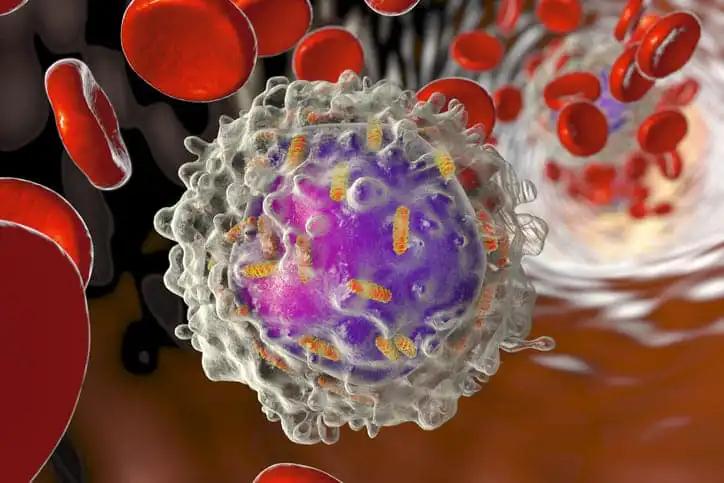KEY TAKEAWAYS
- The phase 2 trial aimed to evaluate the efficacy of PCI in patients with NSCLC who were at a high risk of developing BM.
- Patients diagnosed with NSCLC with specific genetic mutations or elevated carcinoembryonic antigen levels were selected.
- The primary outcome measure assessed was the CBM, with secondary endpoints being progression-free and overall survival.
- PCI substantially reduced CBM and improved progression-free survival and overall survival in patients with NSCLC at high risk of bone metastases.
To date, medical research on the utilization of prophylactic cranial irradiation (PCI) compared to the standard of care (SoC) for individuals diagnosed with non-small cell lung cancer (NSCLC) has not demonstrated a substantial impact on overall survival (OS). Furthermore, the effect of percutaneous coronary intervention (PCI) in high-risk individuals has been limitedly investigated. The primary aim of this randomized phase 2 clinical trial was to assess the efficacy of prophylactic cranial irradiation (PCI) in a cohort of patients with a high susceptibility to developing brain metastases (BM). Patients who met the criteria were diagnosed with non-small cell lung cancer (NSCLC) through histological examination and had no evidence of brain metastases (BM) at the beginning. At diagnosis, these patients also had specific genetic mutations, such as epidermal growth factor receptor mutations, anaplastic lymphoma kinase rearrangements, or elevated carcinoembryonic antigen levels. The subjects were administered systemic therapy based on their molecular status. Those who did not exhibit progressive disease were subsequently allocated to receive standard of care (SoC) or SoC along with prophylactic cranial irradiation (PCI) at a dose of 25 Gy delivered in 10 fractions.
The primary outcome measure assessed was the cumulative incidence of brain metastases (CBM). The secondary endpoints encompass progression-free survival and overall survival.
From May 2012 to December 2017, 84 patients were enrolled in medical research, with 41 patients assigned to receive percutaneous coronary intervention (PCI) and 43 patients receiving standard of care (SoC). Patients assigned to undergo percutaneous coronary intervention (PCI) exhibited a cardiac biomarker (CBM) rate of 7% after 24 months. In contrast, those set to the standard of care (SoC) arm had a CBM rate of 38%. Percutaneous coronary intervention (PCI) was found to have a hazard ratio of 0.12 (95% CI, 0.035-0.42) in the development of bone metastasis (BM). A positive outcome in overall survival (OS) was also noted (64.5 vs. 19.8 months; hazard ratio: 0.41 (95% CI, 0.22-0.78; P =∙007).
Among a specific population with a heightened risk of developing bone metastasis (BM), percutaneous coronary intervention (PCI) demonstrated a significant reduction in cancer-related bone morbidity (CBM) while also improving progression-free survival and overall survival (OS). To the best of our understanding, this is the initial investigation assessing percutaneous coronary intervention (PCI) in individuals with non-small cell lung cancer (NSCLC) who have epidermal growth factor receptor mutations, anaplastic lymphoma kinase rearrangements, or elevated carcinoembryonic antigen levels. The findings of this study demonstrate a noteworthy enhancement in the clinical benefit measure (CBM). This pertinent information should be of specific significance in the context of patients lacking access to third-generation targeted agents. Additional research is necessary to determine this effect.
Source: https://pubmed.ncbi.nlm.nih.gov/33640422/
Clinical Trial: https://classic.clinicaltrials.gov/ct2/show/NCT01603849
Arrieta O, Maldonado F, Turcott JG, Zatarain-Barrón ZL, Barrón F, Blake-Cerda M, Cabrera-Miranda LA, Cardona AF, de la Garza JG, Rosell R. Prophylactic Cranial Irradiation Reduces Brain Metastases and Improves Overall Survival in High-Risk Metastatic Non-Small Cell Lung Cancer Patients: A Randomized phase 2 Study (PRoT-BM trial). Int J Radiat Oncol Biol Phys. 2021 Aug 1;110(5):1442-1450. doi: 10.1016/j.ijrobp.2021.02.044. Epub 2021 Feb 25. PMID: 33640422.



